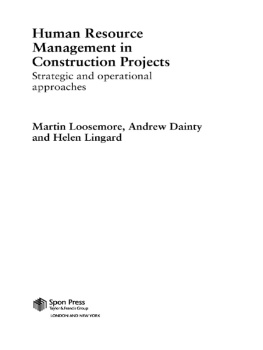DECISIONS, TECHNOLOGY AND ORGANIZATION
Dedicated to friends, colleagues and students past and present, at Aston, Brunei, and Royal Holloway universities.
Decisions, Technology and Organization
AUDLEY GENUS
School of Management, Royal Holloway,
University of London
First published 2000 by Gower Publishing
Reissued 2018 by Routledge
2 Park Square, Milton Park, Abingdon, Oxon OX14 4RN
711 Third Avenue, New York, NY 10017, USA
Routledge is an imprint of the Taylor & Francis Group, an informa business
Copyright Audley Genus 2000
All rights reserved. No part of this book may be reprinted or reproduced or utilised in any form or by any electronic, mechanical, or other means, now known or hereafter invented, including photocopying and recording, or in any information storage or retrieval system, without permission in writing from the publishers.
Notice:
Product or corporate names may be trademarks or registered trademarks, and are used only for identification and explanation without intent to infringe.
Publishers Note
The publisher has gone to great lengths to ensure the quality of this reprint but points out that some imperfections in the original copies may be apparent.
Disclaimer
The publisher has made every effort to trace copyright holders and welcomes correspondence from those they have been unable to contact.
A Library of Congress record exists under LC control number: 00110186
ISBN 13: 978-1-138-73064-9 (hbk)
ISBN 13: 978-1-315-18934-5 (ebk)
Contents
This short book draws on research on the problems of managing large-scale technology conducted by the author over the last decade. It addresses a persistent issue: the double-headed nature of grand projects involving technology. This is all too often revealed in the contrast between their hoped-for benefits and the optimism with which they are promoted, and the high human, economic or environmental costs of their operation. The book owes it inspiration to a body of work undertaken on the subject at the Technology Policy Unit at Aston University but seeks to connect this programme of research to wider developments within the social sciences. What follows therefore analyzes the construction of major technology projects taking in diverse contributions from political science, decision theory, the sociology of technology, and project management. As well being eclectic in its disciplinary orientation, the book attempts to capture the web of factors significant to the commitment that decision-makers maintain in the face of mounting difficulties with managing large-scale technology. It thus shuttles between the analysis of public policy level processes, the nature of government-industry relations, inter-firm contractual relationships, and the extent to which society in general is able to probe or assert influence over affairs that affect them. With regard to the latter the book aims to contribute to the development of a constructive relationship between technology development and social choice. Here, it builds upon the notion of creative incrementalism advocated by proponents of constructive technology assessment as a means to improve the processes and choices made by society in the area of technology development, and to bring to the surface the values underpinning these. The book should be of interest to a wide range of researchers, practitioners and students at an advanced level in the disciplines identified above. Beyond these it will be of value to anyone with an interest in understanding and improving technology development and choice. The preparation of the manuscript has been informed by discussions with colleagues at the Technology Policy Unit at Aston University, within the Technology and Innovation Management group at Brunei University and at sessions at various international conferences and seminars. More specifically, I wish to thank the following: Steve Conway, Anne-Marie Coles, Keith Dickson, Martin Harris, John Howells, Peter James, Christian Koch, Todd LaPorte, Ian McLoughlin, Ruth McNally, Harry Rothman, Fred Steward, and Ned Woodhouse. A special mention must go to my colleague David Collingridge, for his help and encouragement over the years.
Audley Genus
The author wishes to acknowledge the support of the following: the ESRC and SERC for their joint support for research on the case of North Sea oil; Brunei University for funding the research that enabled the preparation of the Channel Tunnel case study; and Brendan Flynn for helping with the data collection on the Channel Tunnel project. The author also wishes to express his thanks to the following publishers for their permission to use excerpts of copyright material: Carfax, for the use of material on North Sea oil first published in Technology Analysis and Strategic Management, vol. 4, 1992, .
ACORD | Advisory Council on Research and Development |
AGR | Advanced Gas Reactor |
BNOC | British National Oil Corporation |
CTA | Constructive Technology Assessment |
CTG | Channel Tunnel Group |
DETR | Department of the Environment, Transport and the Regions |
ETSU | Energy Technology Support Unit |
FM | Francemanche SA |
IEA | International Energy Agency |
IGC | Intergovernmental Commission |
MdO | Maitre dOeuvre |
NAO | National Audit Office |
NASA | National Aeronautics and Space Administration |
NETA | New Energy Trading Arrangements |
NFFO | Non-fossil Fuel Obligation |
OECD | Organization for Economic Cooperation and Development |
OPEC | Organization of Petroleum Exporting Countries |
PSBR | Public Sector Borrowing Requirement |
TML | Transmanche Link |
UKAEA | United Kingdom Atomic Energy Authority |
UKCS | United Kingdom Continental Shelf |
Introduction
This book is about the theory and practice of decision-making and the construction of technology. It speaks to the poverty of attention to failed technological innovation identified by Pinch and Bijker (1987), which persists. It contributes to the literature on grand-scale projects. Such projects provide society with some of its greatest enduring technical achievements but also with some of its most damaging or costly mistakes. Current illustrations of the type of ventures giving cause for concern include defence projects, which often incur very large cost overruns and long development delays (National Audit Office, 2000). Other contemporary projects such as dam-building schemes in Kurdish Turkey, the Oresundsbron road bridge linking Sweden and Denmark, or the Millennium Dome and Millennium Bridge further illustrate the potential ambivalence of large construction projects in terms of serving society. Critics attempt to sound their notes of caution. Supporters and promoters, however, point to the positive implications of these expenditures in terms of their contribution to domestic and foreign policy objectives. In the public debate, either heightened controversy ensues leading to inertia, or in the absence of criticism risky technology is pushed. These observations are hardly new. Yet, surprisingly, there is relatively little research on public policy towards and the operational management of this type of venture. The study of grand projects is an area of research in need of further scrutiny, therefore (Shapira and Berndt, 1997).





